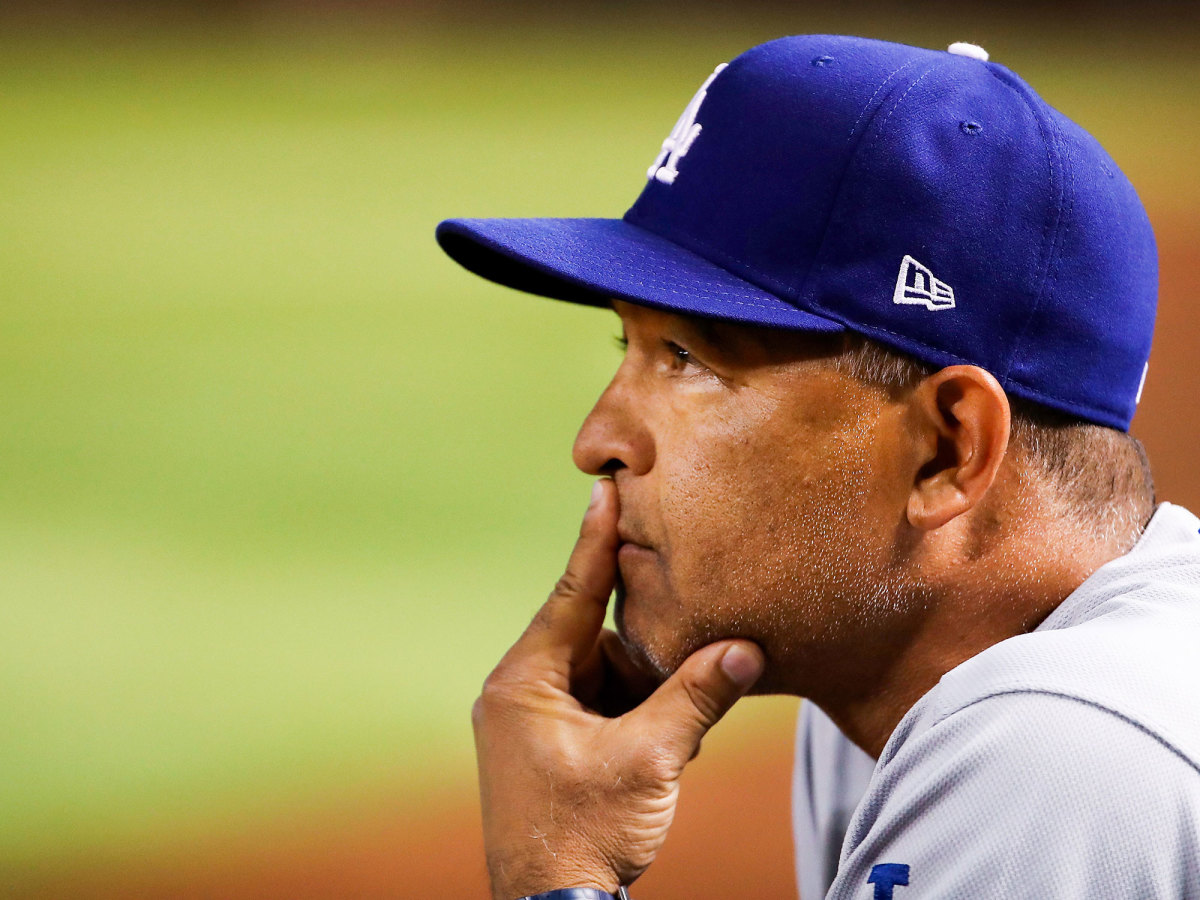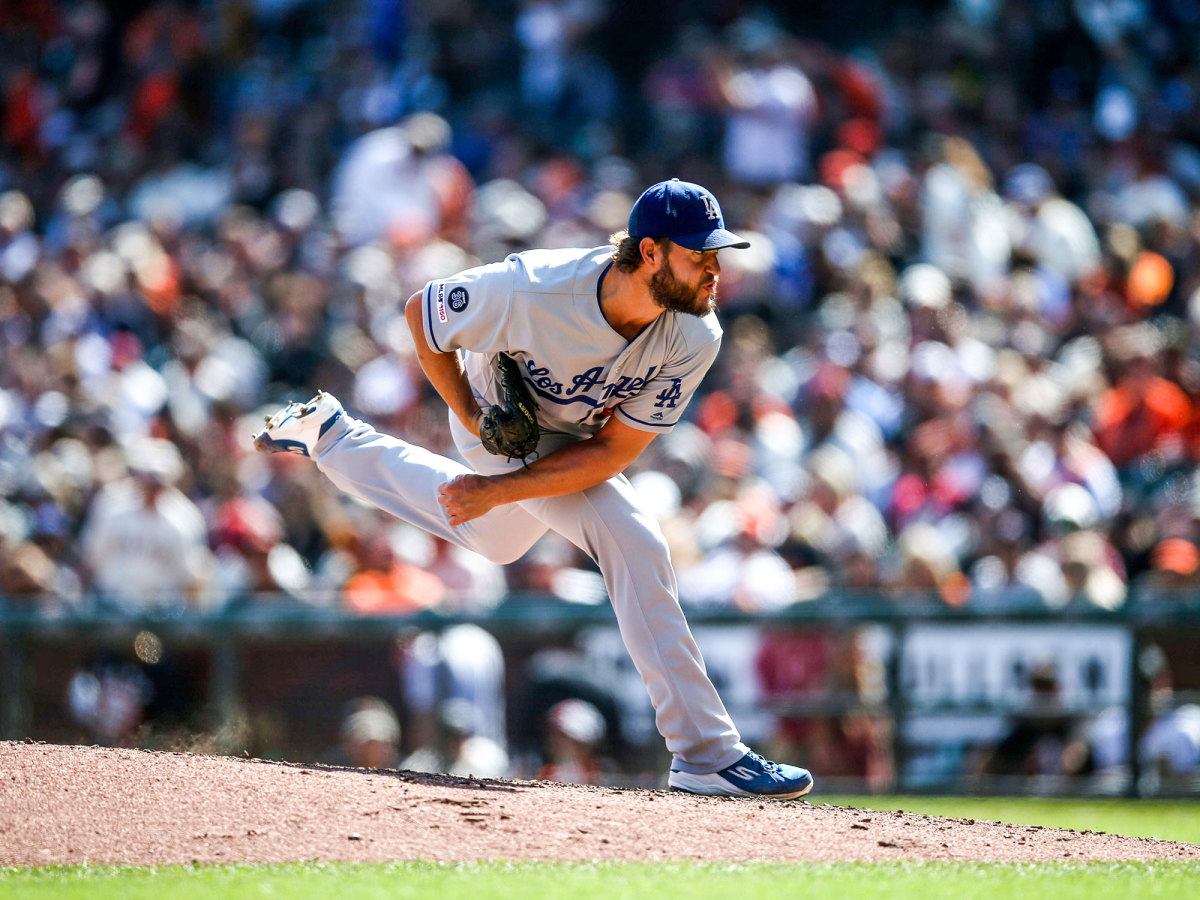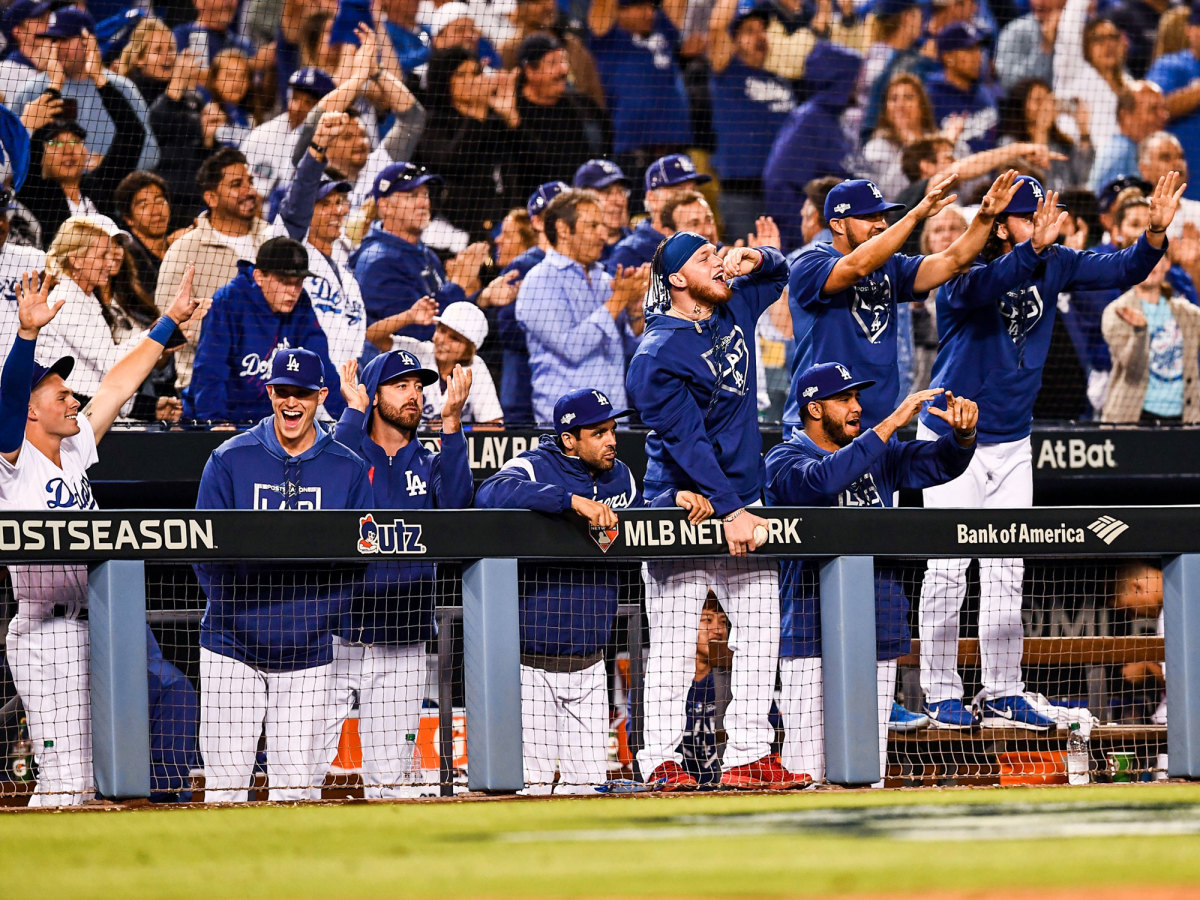2020 Was Supposed to Be the Dodgers' Year. Could It Still Be?
No team stands to lose more from the loss or truncation of the 2020 Major League Baseball season due to the coronavirus than the Dodgers. They may have traded three prospects to Boston for few or no games from Mookie Betts and his $27 million salary. As the team that draws half a million more fans than any other franchise, they are losing the most gate revenue. As the deepest team in baseball, their depth may be less valuable in a shorter season. And as the clear favorites in the National League West, their road to the postseason is more difficult as more games come off the schedule.
The smaller the sample size, the less likely the better team wins. In his four years as Dodgers manager, Dave Roberts has guided Los Angeles to a division championship every year. But if those four seasons were truncated at 60 games, the Dodgers would have won only once, last year. The Diamondbacks, Rockies and Giants each took a turn in first place after 60 games.
“I absolutely agree from that side of things,” Roberts said. “When you shorten the season, less variables come into play. The smaller the sample size the more it brings other teams into play, which is great. But I do think when and if we start the season the expanded rosters will ultimately help our club.”

In 1981, following a two-month strike, players were given just nine days to prepare for the resumption of the season in August. Twenty-five-man rosters were not expanded. Labor stoppages in 1990 and 1995 led to two and three added roster spots, respectively, following 21 and 25 days of training.
If baseball resumes this year, training is likely to take place over a similar 21-to-25-day period. Rosters, which had been expanded to 26 this year, are likely to expand further and, as Roberts hinted, allow for more movement of players on and off the active roster. While I thought a shorter season would not allow the Dodgers to leverage their depth advantage as much, Roberts disagreed with me.
“Expanded rosters are imperative,” Roberts said. “The longer the layoff, the longer guys are out, the more important it becomes to be able to use 35 to 40 players at any point in time. The ability to pull from [the 40-man roster] is very feasible and should be on the table.”
With a 3.37 ERA last season, the Dodgers had by far the best pitching in the majors. Tampa Bay was second at 3.65. What happens to that strength in a short season?
Consider how it might affect their rotation. Until Roberts took over as manager, Clayton Kershaw made the majority of his career starts on four days of rest (55%). But in the past four years, due to injury, age and Los Angeles’s understanding of recovery, Kershaw has made only 39% of his starts with four days of rest.
A shortened season probably will have fewer off days and more doubleheaders to try to make up as many games as possible. Because of how the Dodgers use Kershaw—and because they have so many capable starters—they would be best served to use a six-man rotation. Kershaw, Walker Buehler and David Price are set, with Dustin May, Alex Wood, Julio Urías, Ross Stripling, Tony Gonsolin and Jimmy Nelson all looming as possible good options. May, Urías and Gonsolin no longer have to worry about innings limits because of a shorter season. The Dodgers will have the luxury of not needing to push their pitchers after a long layoff.
The six-man rotation, including a plethora of openers, is likely to be standard procedure for teams in a shorter season with expanded rosters. The traditional five-man rotation has been dying for a decade, anyway. The last time a majority of MLB starts were made on four days rest occurred way back in 2010. This season is likely to accelerate its decline.
During stoppages caused by labor strife, players had little communication with their teams. Indeed, in 1981, players were encouraged not work out to keep in game shape because that would undercut their leverage against owners—messaging a desire to end the strike quickly. This year is totally different. Communication is constant between coaching staffs and players, made easier by video and digital monitoring of training programs. These guys will be ready to go quickly.
The trickiest issue for teams dealing with this extended hiatus is pitching. Pitchers were halfway through spring training when baseball stopped. How do you keep them ready when a resumption date is unknown? For the Dodgers, the answer is to treat this time as an extended January—the transitional time when many pitchers begin throwing programs without throwing off a mound.
“I think right now with our guys it’s more about staying in the January mindset,” Roberts said. “It sounds redundant, but for this period of time that is the hope. Our trainers and staff have done a good job communicating almost daily with them and pitching coach Mark Prior, making sure they stay with the program top to bottom. That’s the overarching mindset: keep the arm moving.
“Clayton, for instance, is throwing into a net. It’s not throwing off a mound. It’s just making sure your arm and body stay ready to go.”

The return of baseball remains unknown. Until testing is more available and rapidly done and until even small gatherings do not endanger public health or divert critical care and medical resources, every idea about where to play and what the schedule looks like is just one in a stack of contingencies.
We just don’t know, though Dr. Anthony Fauci, the director of the National Institute of Allergy and Infectious Diseases and a leading voice of scientific reason during this pandemic, did see a scenario in which baseball could return—again, only if the science and control of the virus allow. A Nationals fan, Fauci told Vanity Fair a return in July by baseball would inspire “people who are dying to see a baseball game.”
And that brings us back to Roberts and the Dodgers and baseball in the year of the pandemic. Urgency upon Los Angeles grows each year. It has not won the World Series since 1988. The Dodgers have won more games since 2011 than any franchise. Betts, Justin Turner, Joc Pederson, Blake Treinin and Enrique Hernandez will be free agents after this season. Roberts briefly glimpsed this team with Betts and David Price in spring training and loved the vibe he received.
“I was excited,” Roberts said. “What’s so much fun is I liked the atmosphere. You look at the teams of Joe Torre with the Yankees, Phil Jackson with the Bulls and Pat Riley with the Lakers and you go, ‘Man, they should win every year with the talent they have.’
“But in talking to Joe—I didn’t talk to Phil but Pat Riley also mentioned it to me—the thing they were so proud of was the way those guys on those teams came in every year with a chip on their shoulders. They were hungry to get better.
“That’s the thing about what it takes to win. It takes more than talent. We’ve seen that. For us to have the new additions like David and Mookie and Blake, they bring their past experiences and it makes what we had even stronger.
“There was so much excitement in camp. I do believe that winning a championship is the ultimate goal of every organization. But having a winning environment and culture year after year is something to be proud of as well. That shows sustainability and consistency.”

As energizing as was the addition of Betts to the Dodgers, and with all they have at stake this year, you can understand why Roberts might be especially eager to get baseball back. And he is—but his reasons go beyond his clubhouse.
“Let me say I don’t know anything about the science side of it,” Roberts said. “I’m just hopeful we’re still going to play baseball. Both sides [owners and players] are motivated, and there are a lot of signs that give me solace in whatever bipartisan agreements they can work toward.
“I think it’s important to play baseball. I don’t see us having fans [in the stands] in the beginning. It would be really different. But if we can, I think the value of us getting back and playing baseball and bringing it into the homes of tens of millions of people is important. Obviously, the safety factor is most important. That’s paramount.
“You know, my father would tell stories of the family being huddled around a radio to listen to a game or around the TV for the one game of the week the family could watch. Lord willing, we can get this season in, and we’re playing and it’s broadcast into our homes to get back that feeling from decades in the past of families huddled around the TV watching America’s pastime.
“And even just by playing baseball, think about in the hospitals, to have baseball on in the hospitals to divert some attention for them … the workers and doctors and patients. It can be therapeutic in some ways. Again, the safety factor is most important. That has to be in place first. But when and if we have a season, baseball can be therapeutic.”
